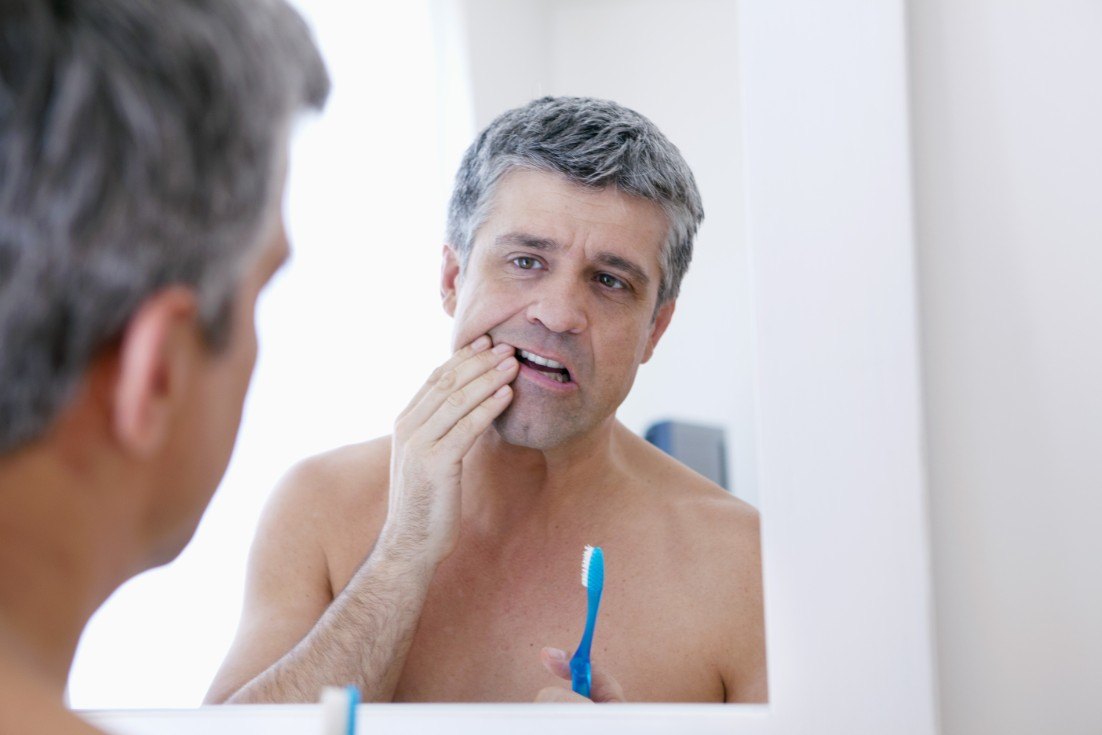
From lifestyle to bristle type, there are a number of reasons why your gums might feel sore or swollen while brushing your teeth. Common causes include:
Brushing Incorrectly
As dental professionals, we encourage brushing twice a day, but to reap the benefits of good oral hygiene it needs to be done correctly. This means using a toothbrush with soft, nylon bristles and brushing gently with circular motions, instead of back-and-forth.
Gum Disease
Swollen, red, or tender gums can be signs of gum disease. Gum disease starts when plaque, a sticky, bacteria-filled film, builds up under and along the gum line. Plaque can cause infections that lead to gum disease and tooth decay, including gingivitis, the earliest stage of gum disease. If left untreated, gingivitis can turn into periodontitis, an advanced form of gum disease. Unlike gingivitis, periodontitis impacts the bones that hold your teeth in place. Without treatment, periodontitis can ruin the gums, bones, and tissues connected to your teeth.
Tobacco
If you smoke or use “smokeless” products, you’re more likely to have gum disease. Additionally, because smokeless tobacco is usually placed between the cheek and gum, it can cause more harm to your mouth than cigarettes. This can result in receding gums, as well as sores inside the mouth and on your gums. Not only does this make brushing painful, it can also lead to oral cancer.
Canker Sores
Canker sores or aphthous ulcers, are small lesions that develop on the soft tissues in your mouth or at the base of your gums. Identified by their white center with red edges, they can make your gums tender and sore to touch. There is no special treatment for canker sores, and they disappear within a week or two.
Hormones
Women undergo hormonal changes during puberty, menstruation, pregnancy, and menopause, which can affect their gums. During these times, hormonal fluctuations create more blood flow to the gums, which can result in swollen, sensitive, or red areas that are irritated by brushing.
Oral Devices
Sometimes braces, retainers, dentures, or mouth guards can pull or rub against the gumline, creating cuts or abrasions which make them sore and painful over time. Once irritated, gums may flare up during brushing.
Chemotherapy
The drugs that target and kill fast-dividing cancer cells can also impact non-cancerous ones, such as the linings of gums and cheeks. Unfortunately, as a result, many chemotherapy patients experience inflamed gums and mouth sores while undergoing treatment.
Abscessed Tooth
When you have an infection by the root of your tooth, it forms a pus pocket, or abscess. While not always painful, some abscessed teeth can cause the gums to swell, resulting in painful brushing.
Stress
While it might seem unrelated, stress raises your levels of cortisol, which increases the likelihood of inflammation throughout the body – including your gums.
Contact Us
Regardless of the root cause, pain while brushing your teeth isn’t the norm. If you experience red, swollen or bleeding gums, it’s important to contact us right away.

